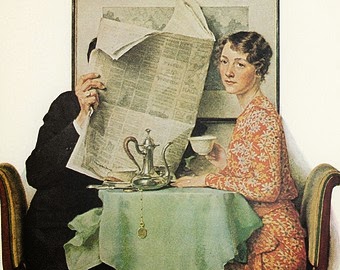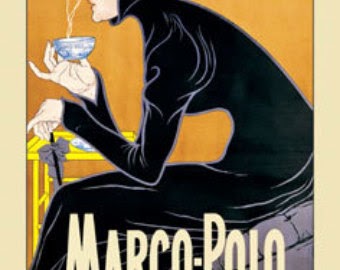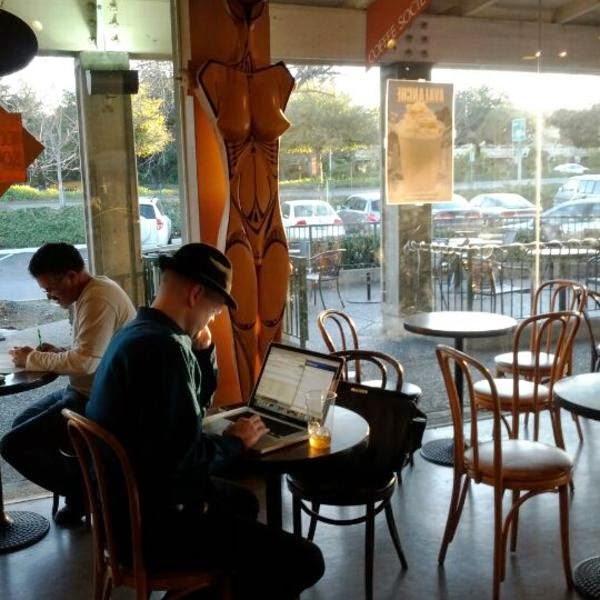 The Hermeneutic cycle: without understanding the whole, you cannot understand the independent parts; without understanding the parts, you can't comprehend the whole.
The Hermeneutic cycle: without understanding the whole, you cannot understand the independent parts; without understanding the parts, you can't comprehend the whole.
Theater d'amour: on grafting trees as symbol: "Just like a branch onto which another shoot is grafted, I am not the same as you, but also not so different."
It's a quiet night in the middle of a very long week. The air feels restless. I sit on my bed, surrounded by piles of notes with the greatest intention of writing you a very lovely letter, but at the moment, I haven't the slightest idea of what to say.
What started this week was both sleep deprivation and the lingering traces of a dream. In my dream (don't worry. I'll spare you details), there were four major symbols: a homeless mansion built from cardboard and salvaged silks, a large collection of ants, a diseased man whose legs actually fell off, and then, his skin. This man had once been covered in meaningful tattoos, that is, until the day he decided to renounce them. When I met him (in my dream) he had blacked out each one, creating a patchwork quilt of black skin.
What stays with me still is the intention. What once began as a desire to make an image life-long had changed into a feeling of regret, a sensation so strong as to render his 'canvas' forever blank. Worse than blank - impossible to do-over.
Trying to shake off the dregs of such a dream, I went for coffee. In my neighborhood, there are two coffee shops I frequent. One is an Italian little place with great food and charming service, but they always presume to know what I want instead of actually asking, resulting in me never getting what I want. The other is this silent, soulless place I find loathe to give my money to. This particular morning, desperation won out.
 When I got there, I was plagued with a feeling of nostalgia. Perhaps this dates me, but I remember the coffee shop craze of the nineties.
When I got there, I was plagued with a feeling of nostalgia. Perhaps this dates me, but I remember the coffee shop craze of the nineties.
When I was a teenager, the coffee shop was the place to be. Every other night, my best friend Brooks Holiday (if you know this man or how to contact him, please tell me. I miss my friend dearly) and I would meet in our similar outfits: big knit sweaters, torn jeans, converse. We'd steal the self-serve coffee, grab some concrete, and light up cigars.
Each night began the same but ended differently. At the coffee shop, everyone would gather, pass out and collect handbills, talk with the musicians, find the parties. Each night, the place was bustling. It was the place to see and be seen, but was a place where you had to be included. Those that hung out there were discerning, to say the least.
This brief moment of coffee shop culture was as quickly ended as it began, having been run through by the blade of the ever-present Starbucks, and its sister corporations. Slowly, the crowds changed from young teenagers and twenty-somethings to single workers, equipped with their laptops and headphones. Eventually, as I'm sure you know, these cafes have now become such sterile environments as to almost mimic cubicles.
In San Francisco, even Ritual Coffee (labeled by some tourist magazine as "the social center of bustling Valencia Street, a hip and artistic area that is home to the city's alternative set." ) - I can't walk in there without the panic-attack induced by just too much coolness.
Out of curiosity, I decided to research the history of the cafe, hoping to find the tell-tale seam in which it all started to fall apart. Clearly, we are of the New World, meaning we don't hold such political or rebellious attachments to the cafe as say our ancient Turks or even the Modern Parisians. But, did you know, that coffee is considered to be the most patriotic of American beverages, thanks to the Boston Tea Party, and its inherent ability to increase productivity?
For me, the charm resounded in the endless line for the pay-phone, the massive bulletin board on your way to the bathroom, the counter littered with flyers.
As I kept reading, I found myself burdened with the seemingly endless articles blaming the tech industry. Though I am loathe to point that finger, I will say that I did discover some interesting tid-bits.
In one article, written by The New Yorker, they were sharing the shock they felt in realizing that San Francisco had now surpassed New York as the culture mecca for the country. "In recent years, San Francisco has become the capital of what someone described to me as 'three-business-card life'."
What was disturbing, though perhaps worth considering, is the differentiation The New Yorker was putting on tech vs start-up culture.
"The youth, the upward dreams, the emphasis on life-style over other status markers, the disdain for industrial hierarchy, the social benefits of good deeds and warm thoughts - only proper nouns distinguish the description from a portrait of the startup culture in the Bay Area today. It is starting to realize that urban tech life is the closest heir to the spirit of the sixties, and its creative efflorescence, that the country has so far produced."
According to newstateman.com:
"There is something slightly creepy about the bourgeois cybertopia of start-up City, all hi-tech doodahs and rustic jumpers. Valencia Street is where good hipsters go when they die... There are artisanal cheese parlors, 'destination' bakeries and tasteful shops where you can buy a variety of specialist instruments for disappearing up your own backside, or those of others. The weather is always beautiful, a perpetual late spring where it's never quite cold enough to wear your fanciest overcoat."
 It went on to add: "It's all a little bit Pleasantville - if you ignore the vagrants, addicts and angry activists. That's the sort of ignoring that takes practice."
It went on to add: "It's all a little bit Pleasantville - if you ignore the vagrants, addicts and angry activists. That's the sort of ignoring that takes practice."
The aging side of me wants to shut down the changes the younger ones are bringing, while the young in me recognizes that I know nothing, that there is no way to predict what is actually happening, no way of knowing which way really is up.
I started to find myself intrigued by the mysticism being presented regarding the start-ups. The New Yorker went to visit some dude they purported as being the most around-town dude in San Francisco, some man I had never heard of who's holed up in one of our lovely warehouses in the Mission.
 The journalist talked about the innocent desire behind start-ups, positing that the youth culture, being raised with a desire to see the world change, were trying to create socially responsible companies, trying to be a part of the community, to share with its neighbors.
The journalist talked about the innocent desire behind start-ups, positing that the youth culture, being raised with a desire to see the world change, were trying to create socially responsible companies, trying to be a part of the community, to share with its neighbors.
Well, two things were presented that left a taste of bile in my mouth.
Same dude, Mr. King of San Francisco was going to be trading places with the lead singer of Third Eye Blind. Apparently, a posh mansion in Pac Heights wasn't lending itself to music writing, and so the singer-songwriter had called on a favor. By trading houses, he was hoping that slumming it (my words) would help jump start his fairly forgotten career.
The second was that Mr. King's warehouse had become such a center of culture, or so he claimed, that they often hosted music events and art openings, events of the kind as to attract musical acts Twin Shadow and Grimes. Their guests: multi-millionaire business people who would just pluck these "affordable" works of art straight off the wall.
Imagine my horror when I went on to read an article about the death of the music scene in SF, specifically in response to the new direction Cafe du Nord has taken (trying to accommodate their more affluent, new 200 neighbors).
According to Allen Scott, executive president of Another Planet (the umbrella organization that runs Outside Lands, Treasure Island Music Fest, and books the Independent, Bill Graham Civic Auditorium and the Fox Theater in Oakland), "The music business in the Bay Area right now is as strong as it's been in the last five or six years."
 As I kept reading, I found out that there is a new type of music venue opening in the city, one which caters, in fact is INVITE ONLY, to techies. The agents bring in all sorts of indie bands to play these private parties, essentially, bringing the whole indie scene to the people already being spoon-fed their lifestyles.
As I kept reading, I found out that there is a new type of music venue opening in the city, one which caters, in fact is INVITE ONLY, to techies. The agents bring in all sorts of indie bands to play these private parties, essentially, bringing the whole indie scene to the people already being spoon-fed their lifestyles.
There was, however, one intriguing point that actually made me nervous. They were talking about all these corporate sponsorships of music festivals, and how they, in their patronage of the arts, find money-backing to be beneficial. Corporations like Converse truly believe that by financially supporting these endeavors, that they are gaining a wider audience for these musicians, a win-win in their book.
"In a larger way, when you look at the way music used to be consumed, the art form carries less cultural weight now. It doesn't have the power it once had. There's a reason there are no new Bob Dylans in the world. I don't think rock'n'roll is over. It's just one of many choices now."
Hold the phone, please.
 Like I said, I really don't like getting angry or getting worked up over what seems like a simple answer to a much more convoluted situation.
Like I said, I really don't like getting angry or getting worked up over what seems like a simple answer to a much more convoluted situation.
Everyone has a right to make money however they see fit. It is not up to me to judge. All I can do, all I've been raised to do, is to choose that which I want to participate in.
At the moment, I'm choosing to speak to you, the you who has the black hoodie in your closet, or the black t-shirt, or the black leather jacket. I'm talking to all of you who have had no choice but to walk to your own inner drum, the ones forsaken by corporate culture (much better in the end, anyway) and therefore forsaking of the same. If you are like me, you have spent each second of every day maintaining and building that space of difference between us and them, out of a sense of survival, at first, and then later, a sense of conquest.
With social acceptance, we suddenly become not one but a few, and it's a lot easier to shun someone/something when you're backed by the cool kids. With homogenized culture, we lose our individuality.
 I realize that at 35, this might read as a bit childish. In moving to San Francisco, actually, I spent a long time thinking about how "coming home" also meant letting go of a lot of my ideals. And that the older I get, the more difficult it is to assess these decisions. My ideology is as strong as my nylon tights, a sense of style that defines me, but one that is constantly getting snagged, mangled, and costing too much of me to be replaced often.
I realize that at 35, this might read as a bit childish. In moving to San Francisco, actually, I spent a long time thinking about how "coming home" also meant letting go of a lot of my ideals. And that the older I get, the more difficult it is to assess these decisions. My ideology is as strong as my nylon tights, a sense of style that defines me, but one that is constantly getting snagged, mangled, and costing too much of me to be replaced often.
Out of curiousity, I decided to look up the definition of hipsters, a term too indiscriminately bestowed on people like "us".
According to some dude named Rob Horning, "The hipster might be the embodiment of post-modernism as a spent force, revealing what happens when practice and irony exhaust themselves as aesthetics, or might be a kind of permanent cultural middlemen in hyper mediated late-capitalism, selling out alternative sources of social power developed by outside groups."
Ansel and Thompson "argue that the hipster signifies a cultural mythology, a crystallization of a mass-mediated stereotype generated to understand, categorize and marketize indie consumer culture, rather than an objectified group of people."
 Round and round and round I went, feeling nothing but frustration. All my conversations this week were centered on these topics. Everyone had a heated point to add, and yet no one offered direction.
Round and round and round I went, feeling nothing but frustration. All my conversations this week were centered on these topics. Everyone had a heated point to add, and yet no one offered direction.
Irritated with myself, I wondered why I kept walking in circles.
And then I remembered the labyrinth.
Don't ask what possessed me to read a 1200 page book on the history of the labyrinth, but I did and let me tell you: the labyrinth is one of those strange human phenomena. It has managed to show up, to replicate itself, throughout the world and throughout cultures, with no possible way of these people ever meeting, communicating, influencing the other. These things just began.
Granted, there are several different types of labyrinth, but the one we are most familiar with is the Chartres pattern. It faces west, it's opening is on the southern end. It is made up of (traditionally, though not always) seven concentric circles. As Christianity was wont to point out when it took over the history of the labyrinth, there is only one way in and one way out, showing that through our belief in God, we will find salvation.
 I'm not sure if you knew this, but Grace Cathedral has two of these labyrinths, one outside and one in. Typically, when you find one in a Christian church, it's intention is to help you focus your spiritual meditation, leading you on a quicker path to salvation. Outside, you have more of the world to contemplate.
I'm not sure if you knew this, but Grace Cathedral has two of these labyrinths, one outside and one in. Typically, when you find one in a Christian church, it's intention is to help you focus your spiritual meditation, leading you on a quicker path to salvation. Outside, you have more of the world to contemplate.
On a date, years ago, we decided to wander the circles. Intending concepts of initiation, death, the underworld of reincarnation: The lack of choice regarding direction is 'symbolic of the conformity to natural laws and is not limited to subjective arbitrary experience. Once at the center, own subject is all alone, encountering him - or herself, a divine principle."
It demands a fundamental change by physically forcing you in a 180 to exit.
Is it that life requires us to walk in endless circles in order to lengthen the simple line of point A to point B? To make it interesting? To keep us going?
Back to the tech-takeover. My roommate (having recently suffered an eviction) is quick to anger on the subject of the Air BnBs, Uber, Lyft, all these organizations which accrue mass capital without playing by the rules. They instead spend tons on court battles instead of buying insurance. Who's to be held responsible?
Gary Kamiya, author of the guidebook Cool Gray City of Love writes, "This anti-governement ethos is really troubling and short sighted on the part of those techies who hold it. They don't understand certain basic things about how society functions, like the concept of the tragedy of the commons - that if everybody is only out for themselves, you're unable to come together to create things that can only be done by joint action."
It's now nearing the middle of the night, and I've finished my bottle of wine. I'm still just as lost as ever. I'm ecstatic to learn that vinyl is gaining a resurgence, that the DIY is still going (kinda). There are even rumors of how the tech bubble has already surpassed the breaking point of the dot com era, and now investors and potential renters are being warned.
But the reality of this situation is simply this: somehow the true 'we' have found ourselves, individual branches on a very large tree. Let's try not to take too much, in order to let the fruit grow.
A good joke for you.
Q: What did the pig say when it came out of the desert?
A: Shit. I'm bacon.
 |
| I accidentally wound up here once. |

.jpeg)









.jpeg)


